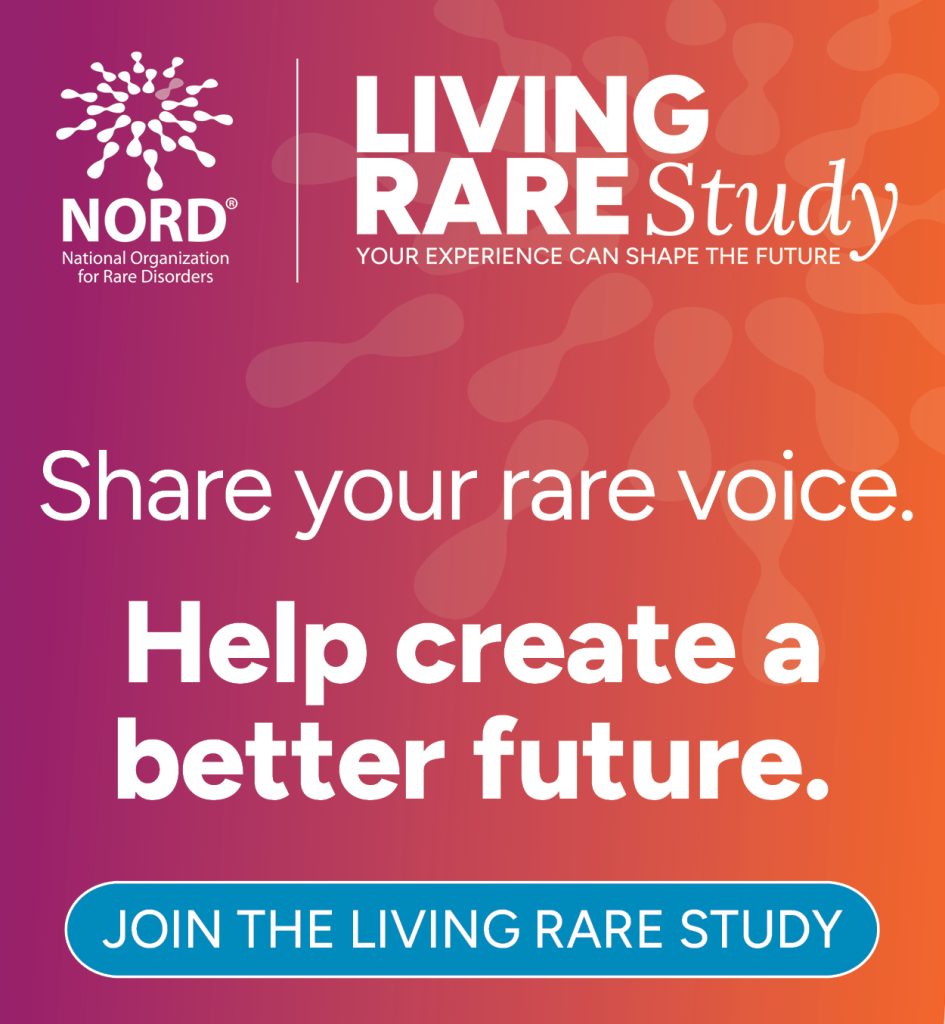
Data will be used to help improve policy, access, resources
WASHINGTON, DC, October 21, 2024 – Today, the National Organization for Rare Disorders (NORD) introduced the Living Rare Study, a groundbreaking multi-year research initiative designed to capture and analyze the experiences of those living with a rare disease. As the first large-scale study of its kind in the United States, it will explore challenges faced by individuals and caregivers in the rare disease community, highlighting critical gaps in resources and healthcare.
“Rare diseases affect more than 30 million Americans and represent a significant public health issue. Yet without comprehensive data, their collective impact remains largely invisible,” said Pamela Gavin, Chief Executive Officer of NORD. “The Living Rare Study will change that by gathering data directly from those impacted, providing the information needed to advocate for the changes our rare disease patient community so urgently needs such as expanded insurance coverage, enhanced newborn screening and more.”
Created with input from individuals with rare diseases and their caregivers, the study is designed to explore various aspects of living with a rare disease, including healthcare access, daily life management, emotional well-being and the financial burdens families face. By examining social determinants of health like geography and access to care, the study also aims to reveal how these and other factors may shape health outcomes for those with rare diseases.
“For the first time, we’ll have robust data that not only captures medical challenges but also illustrates the broader social and economic effects of rare diseases,” said Edward Neilan, M.D., Ph.D., Chief Medical and Scientific Officer, NORD. “These insights are crucial for transforming the way rare diseases are managed and ensuring more equitable care.”
NORD will use the study’s findings to identify key issues, shape programming and educate the public and lawmakers about the compounded difficulties of living with a rare disease. NORD plans to publish ongoing research reports exploring these factors and using the data gathered to help inform policy and resource allocation at both the national and local levels.
The Study is open to anyone who has been diagnosed with a rare disease or suspects they may have one. Caregivers of those with a rare disease can also participate in the survey, providing a vital and often unexplored perspective to the research. The survey is user-friendly and flexible, allowing people to complete it at their own pace and update their information annually. Participants can also compare their responses to the combined responses of other participants. Data collected will be securely stored on NORD’s IAMRARE® platform, which is fully HIPAA-compliant, ensuring participants’ privacy.
“Living with a rare disease creates a ripple effect that touches every part of life —finances, emotional well-being, careers, and relationships,” said Gavin. “The more people who join the study, the more powerful the data becomes to drive change and ultimately, create a better future for those with rare diseases.”
To learn more about the Living Rare Study and how to participate, please visit livingrarestudy.org.
About the National Organization for Rare Disorders (NORD)
With a more than 40-year history of advancing care, treatments, and policy, the National Organization for Rare Disorders (NORD) is the leading and longest-standing patient advocacy group for the 30 million Americans living with a rare disease. An independent 501(c)(3) nonprofit, NORD is dedicated to individuals with rare diseases and the organizations that serve them. NORD, along with its more than 340 patient organization members, is committed to improving the health and well-being of people with rare diseases by driving advances in care, research, and policy.
Cheryl Herbert
National Organization for Rare Disorders (NORD)


